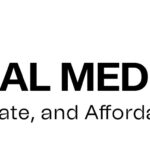As the healthcare industry continues to evolve, medical practices are under increasing pressure to improve efficiency, reduce administrative burdens, and maintain financial stability. Outsourcing billing has become a strategic move for many providers, helping them streamline operations and support long-term growth. By transferring complex billing responsibilities to experts, healthcare organizations can focus on what matters most—delivering quality patient care.
In today’s healthcare landscape, managing insurance approvals and reimbursements requires more than just accurate coding and claim submission. Two processes that often confuse healthcare providers are credentialing in medical billing and provider enrollment. While the terms are sometimes used interchangeably, they serve distinct purposes in ensuring that physicians and medical practices can get reimbursed efficiently.
Enhancing Efficiency Through Professional Billing Management
Outsourcing allows practices to eliminate common revenue cycle challenges such as claim denials, coding errors, and delayed reimbursements. Partnering with experienced medical billing services ensures that every claim is handled with accuracy and compliance, leading to improved cash flow and reduced administrative strain. These services bring structure, consistency, and expertise to billing operations, making practices more efficient overall.
California Practices Benefit from Strong Local Expertise
Healthcare regulations in California are more complex than in many other states, which makes outsourcing particularly valuable. Providers who work with specialized medical billing services California gain access to teams familiar with state-specific payer rules, compliance standards, and documentation requirements. This localized expertise helps minimize errors and ensures that claims meet California’s stringent insurance guidelines, supporting sustainable growth.
What Is Provider Enrollment?
Provider enrollment is the process of signing up with insurance networks so that providers can deliver services to patients under specific health plans. Enrollment involves completing applications, submitting necessary documents, and contracting with insurers. While credentialing verifies a provider’s eligibility, enrollment ensures that the provider is officially part of an insurance network and can bill for services rendered.
The Role of Credentialing in Expanding a Practice
Credentialing is essential for any provider looking to expand their patient base or join additional insurance networks. However, managing enrollment and verification can be time-consuming. Experts in credentialing in medical billing streamline the process by handling paperwork, tracking deadlines, coordinating with payers, and ensuring all provider information is accurate. Smooth credentialing enables practices to grow without delays in reimbursement or interruptions in patient services.
Outsourced Billing Helps Practices Scale with Confidence
When practices offload billing responsibilities, they gain more time and resources to invest in patient care, new services, or expansion. Outsourcing supports growth by:
-
Reducing administrative workloads
-
Improving claim accuracy and success rates
-
Enhancing revenue predictability
-
Providing advanced reporting and analytics
-
Ensuring compliance at every stage of billing
These benefits create a strong foundation for long-term development and operational stability.
Driving Financial Stability and Strategic Growth
Revenue cycle management is directly tied to a practice’s ability to grow. Outsourced billing services provide the expertise needed to optimize collections, reduce overhead costs, and prevent financial disruptions. With dedicated billing professionals overseeing compliance, coding, and collections, providers can expand services or locations without worrying about increased administrative burdens.
Key Differences Between Credentialing and Enrollment
- Focus – Credentialing validates qualifications; enrollment registers providers with insurers.
- Outcome – Credentialing ensures providers are eligible; enrollment allows billing under specific networks.
- Process – Credentialing involves verification of credentials; enrollment involves contracting and paperwork with payers.
- Impact on Billing – Both are essential; without them, providers face claim denials and payment delays.
Conclusion
Outsourced medical billing is more than a convenience—it is a strategic investment that supports growth, efficiency, and financial health. Whether improving claim management, expanding insurance participation, or strengthening compliance, outsourced services give healthcare providers the tools they need to scale confidently in a fast-changing industry. With expert billing and credentialing support, practices can achieve stronger performance and long-term success.











Leave a comment